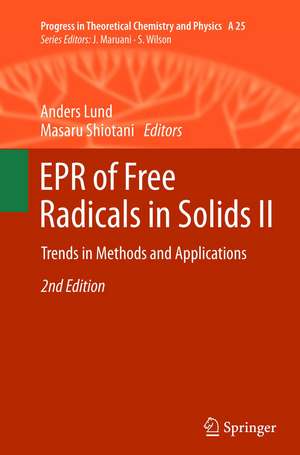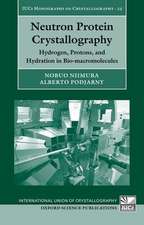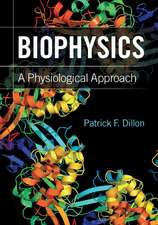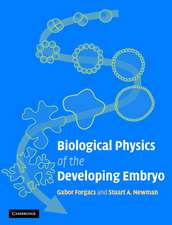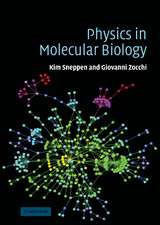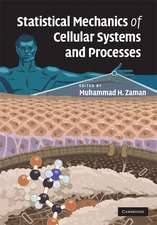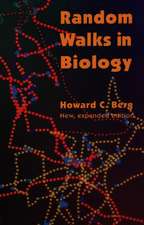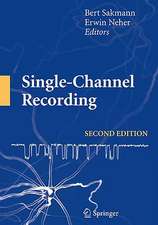EPR of Free Radicals in Solids II: Trends in Methods and Applications: Progress in Theoretical Chemistry and Physics, cartea 25
Editat de Anders Lund, Masaru Shiotanien Limba Engleză Paperback – 29 ian 2015
| Toate formatele și edițiile | Preț | Express |
|---|---|---|
| Paperback (1) | 1548.56 lei 6-8 săpt. | |
| SPRINGER NETHERLANDS – 29 ian 2015 | 1548.56 lei 6-8 săpt. | |
| Hardback (1) | 1563.72 lei 6-8 săpt. | |
| SPRINGER NETHERLANDS – 8 dec 2012 | 1563.72 lei 6-8 săpt. |
Din seria Progress in Theoretical Chemistry and Physics
-
 Preț: 391.79 lei
Preț: 391.79 lei - 18%
 Preț: 1238.74 lei
Preț: 1238.74 lei - 18%
 Preț: 1234.77 lei
Preț: 1234.77 lei - 18%
 Preț: 1236.51 lei
Preț: 1236.51 lei - 18%
 Preț: 1222.62 lei
Preț: 1222.62 lei - 18%
 Preț: 1230.53 lei
Preț: 1230.53 lei - 18%
 Preț: 945.30 lei
Preț: 945.30 lei - 18%
 Preț: 3023.14 lei
Preț: 3023.14 lei - 18%
 Preț: 1231.16 lei
Preț: 1231.16 lei - 15%
 Preț: 697.15 lei
Preț: 697.15 lei - 18%
 Preț: 956.69 lei
Preț: 956.69 lei - 18%
 Preț: 1214.90 lei
Preț: 1214.90 lei - 18%
 Preț: 1233.52 lei
Preț: 1233.52 lei - 18%
 Preț: 1224.99 lei
Preț: 1224.99 lei - 18%
 Preț: 1822.14 lei
Preț: 1822.14 lei - 18%
 Preț: 1845.48 lei
Preț: 1845.48 lei - 18%
 Preț: 1233.06 lei
Preț: 1233.06 lei - 18%
 Preț: 955.56 lei
Preț: 955.56 lei - 18%
 Preț: 1223.74 lei
Preț: 1223.74 lei - 24%
 Preț: 1069.44 lei
Preț: 1069.44 lei - 18%
 Preț: 956.69 lei
Preț: 956.69 lei - 18%
 Preț: 953.52 lei
Preț: 953.52 lei - 18%
 Preț: 954.45 lei
Preț: 954.45 lei - 18%
 Preț: 1223.74 lei
Preț: 1223.74 lei -
 Preț: 390.63 lei
Preț: 390.63 lei -
 Preț: 390.25 lei
Preț: 390.25 lei
Preț: 1548.56 lei
Preț vechi: 1888.49 lei
-18% Nou
Puncte Express: 2323
Preț estimativ în valută:
296.41€ • 322.08$ • 249.15£
296.41€ • 322.08$ • 249.15£
Carte tipărită la comandă
Livrare economică 21 aprilie-05 mai
Preluare comenzi: 021 569.72.76
Specificații
ISBN-13: 9789400793507
ISBN-10: 9400793502
Pagini: 404
Ilustrații: XIV, 390 p.
Dimensiuni: 155 x 235 x 21 mm
Greutate: 0.56 kg
Ediția:2nd ed. 2012
Editura: SPRINGER NETHERLANDS
Colecția Springer
Seria Progress in Theoretical Chemistry and Physics
Locul publicării:Dordrecht, Netherlands
ISBN-10: 9400793502
Pagini: 404
Ilustrații: XIV, 390 p.
Dimensiuni: 155 x 235 x 21 mm
Greutate: 0.56 kg
Ediția:2nd ed. 2012
Editura: SPRINGER NETHERLANDS
Colecția Springer
Seria Progress in Theoretical Chemistry and Physics
Locul publicării:Dordrecht, Netherlands
Public țintă
ResearchCuprins
EPR studies of atomic impurities in rare gas matrices.- Organic Radical Cations and Neutral Radicals Produced by Radiation in Low-Temperature Matrices.- Molecule-Based Exchange-Coupled High-Spin Clusters - Conventional, High-Field/High-Frequency and Pulse-Based Electron Spin Resonance of Molecule-Based Magnetically Coupled Systems.- Novel Applications of ESR/EPR: Quantum Computing/Quantum Information Processing.- High Spin Molecules Directed Towards Molecular Magnets.- Electron Transfer and Structure of Plant Photosystem II.- Applications of EPR in the Environmental Sciences.- Some Recent Developments of EPR Dosimetry.- Optically Detected Magnetic Resonance of Defects in Semiconductors.
Textul de pe ultima copertă
EPR of Free Radicals in Solids: Trends in Methods and Applications, 2nd ed. presents a critical two volume review of the methods and applications of EPR (ESR) for the study of free radical processes in solids. Emphasis is on the progress made in the developments in EPR technology, in the application of sophisticated matrix isolation techniques and in the advancement in quantitative EPR that have occurred since the 1st edition was published. Improvements have been made also at theoretical level, with the development of methods based on first principles and their application to the calculation of magnetic properties as well as in spectral simulations. EPR of Free Radicals in Solids II focuses on the trends in applications of experimental and theoretical methods to extract structural and dynamical properties of radicals and spin probes in solid matrices by continuous wave (CW) and pulsed techniques in nine chapters written by experts in the field. It examines the studies involving radiation- and photo-induced inorganic and organic radicals in inert matrices, the high-spin molecules and metal-based molecular clusters as well as the radical pro-cesses in photosynthesis. Recent advancements in environmental applications in-cluding measurements by myon resonance of radicals on surfaces and by quantitative EPR in dosimetry are outlined and the applications of optical detection in material research with much increased sensitivity reviewed. The potential use of EPR in quantum computing is considered in a newly written chapter. This new edition is aimed to experimentalists and theoreticians in research involving free radicals, as well as for students of advanced courses in physical chemis-try, chemical physics, materials science, biophysics, biochemistry and related fields.
Caracteristici
Focuses on applications involving inorganic and organic radicals High-spin molecules and complexes are also considered as well as radical processes in photosynthesis 2nd edition includes recent advances in environmental applications including EPR dosimetry
